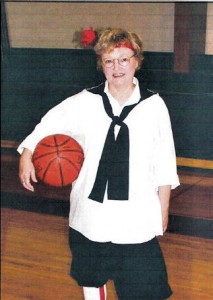Act 1: The Conflict
Employee:
I wish my boss would get off my back.
Sure, she schedules me for only 26 hours of work a week. And when I want to go off on a trip somewhere, all I have to do is give her a couple of weeks’ notice. Oh, yes, she also provides health insurance.
But she’s put this schedule on my desk, telling me which hours to work, when to take lunch, even when to do my housework.
She tells me that if I want to have any personal time in the morning, I must get up at 5:30, be dressed and ready to walk at 7:00, eat breakfast and be at my desk by 8:30.
And those items on the To-Do List she keeps piling on?! What an unreasonable, insensitive nag!
Well, I’ll show her! I’m taking a break and playing a game of FreeCell! Then I’m going to the kitchen for a snack.
Boss:
Go ahead! Play your games. Eat your apple.
But don’t come complaining to me that you’re behind schedule on two of your three blogs, your family reunion commitments, and following up on another possible paying job. Continue reading







